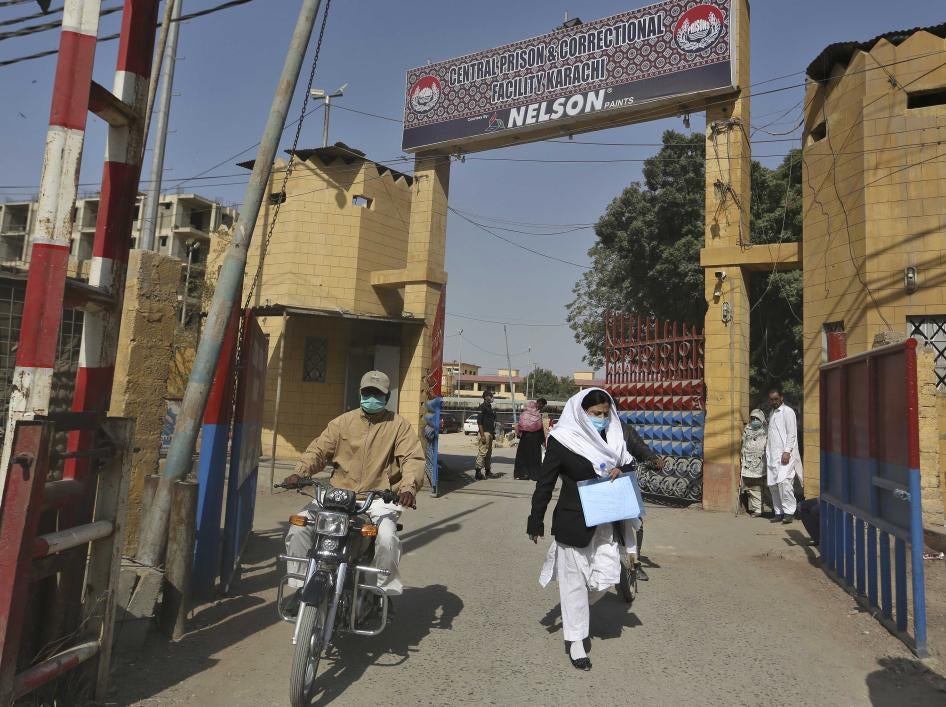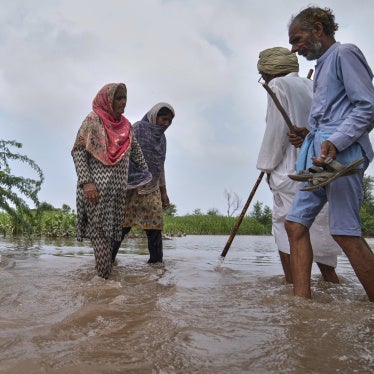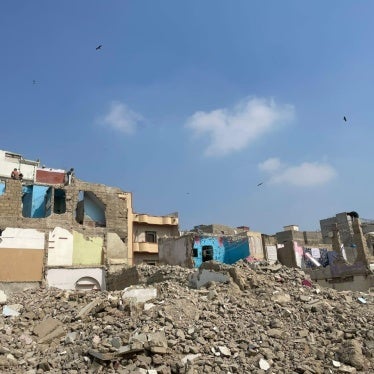- Pakistani authorities have systematically deprived prisoners of adequate health care, leaving thousands at risk of disease and death.
- Outdated and discriminatory bail laws lead to severe overcrowding, with most prisoners yet to be tried or convicted, leaving them vulnerable to communicable disease and unable to get care.
- Officials should allocate adequate health care resources, provide sanitary living conditions and adequate food, carry out critical reforms to bail laws, and curb corruption in the system.
(New York) – Pakistani authorities have systematically deprived prisoners of adequate health care, leaving thousands at risk of disease and death, Human Rights Watch said in a report released today. Outdated and discriminatory bail laws have led to severe overcrowding, with most prisoners yet to be tried or convicted.
The 55-page report, “A Nightmare for Everyone: The Health Care Crisis in Pakistan’s Prisons,” documents widespread deficiencies in prison health care in Pakistan and the consequences for a total prison population of more than 88,000 people. Pakistan has one of the world’s most overcrowded prison systems, with cells designed for a maximum of 3 people holding up to 15. Severe overcrowding has compounded existing health care deficiencies, leaving inmates vulnerable to communicable diseases and unable to get medicines and treatment for even basic health needs, as well as emergencies.
“Pakistan’s prison system is in need of urgent, systemic reform,” said Patricia Gossman, associate Asia director at Human Rights Watch. “Successive governments have acknowledged the problem and done nothing to address the most critical needs to overhaul bail laws, allocate adequate resources, and curb corruption in the system.”
Human Rights Watch interviewed 54 people, including former inmates in Sindh, Punjab, and Islamabad, among them women and juveniles, lawyers for detainees and convicted prisoners, prison health officials, and advocacy organizations working on prisoner rights.
The principal cause of overcrowding is the dysfunctional criminal justice system itself, Human Rights Watch found. Most inmates are under trial and have yet to be convicted. The majority facing criminal trials are poor and lack access to legal aid. A lack of sentencing guidelines and the courts’ aversion to alternative noncustodial sentences even for minor offenses significantly contributes to overcrowding.
The crisis in prison health care reflects deeper failures in access to health care across Pakistan, exacerbated most recently by an economic crisis. Poor health care intersects with a range of other rights abuses against prisoners, including torture and mistreatment, and is a key symptom of a broken judicial system. Corruption among prison officials and impunity for abusive conduct contribute to serious human rights abuses.
Rich and influential inmates sometimes serve out their sentences outside prison in private hospitals, while poorer prisoners pay bribes just to get pain relief medication. Colonial-era laws enable the government and other powerful people to interfere in police and prison operations, sometimes directing officials to grant favors to allies and harass opponents.
Poor infrastructure and corruption have left prison healthcare services vastly overstretched. Most prison hospitals lack adequate budgets for medical staff, essential equipment, and sufficient ambulances. Almost all prisoners interviewed described unhealthy and inadequate food, dirty water, and unhygienic conditions. Prisoners said that often their only option for drinking water was from the tap, which is generally unfit for drinking in Pakistan due to its high arsenic content.
Human Rights Watch found that women prisoners are among the most at-risk inmates. Patriarchal societal attitudes, lack of independent financial resources, and abandonment by families contribute to additional hardships for women prisoners. Women in the criminal justice system routinely experience prejudice, discrimination, and abuse, and for these reasons face greater difficulties accessing health care.
Prisoners with disabilities are at great risk of abuse, discrimination, and mistreatment. Despite the high prevalence of psychosocial disabilities – mental health conditions – among inmates, Pakistani prisons don’t provide access to even basic mental health support. The prison system lacks mental health professionals, and prison authorities tend to view any report of a mental health condition with suspicion. Psychological assessments for new prisoners are either perfunctory or not done at all.
Pakistani governments at the federal and provincial levels should urgently adopt measures to bring health care in its jails and prisons in line with international standards, such as the Nelson Mandela Rules. Successive governments’ failure to allocate adequate resources and to monitor and efficiently utilize them has contributed significantly to the dilapidated state of the prison system. The Sindh province is the only province in the country that has enacted prison rules in line with international standards, but the rules are not enforced well.
In addition to addressing access to health care, and ensuring sanitary living conditions and adequate food, the most important reforms include changing bail laws, expediting the trial process, and prioritizing noncustodial sentences to reduce overcrowding.
The United Nations Human Rights Committee has stated that governments have a “heightened duty of care to take any necessary measures to protect the lives of individuals deprived of their liberty.” This is because when detaining people, the government “assume[s] responsibility to care for their life.”
“Pakistan needs urgent and comprehensive prison reform, with a particular focus on the rights of women, children, and other at-risk prisoners,” Gossman said. “Basic health care is a fundamental right, including for prisoners.”








